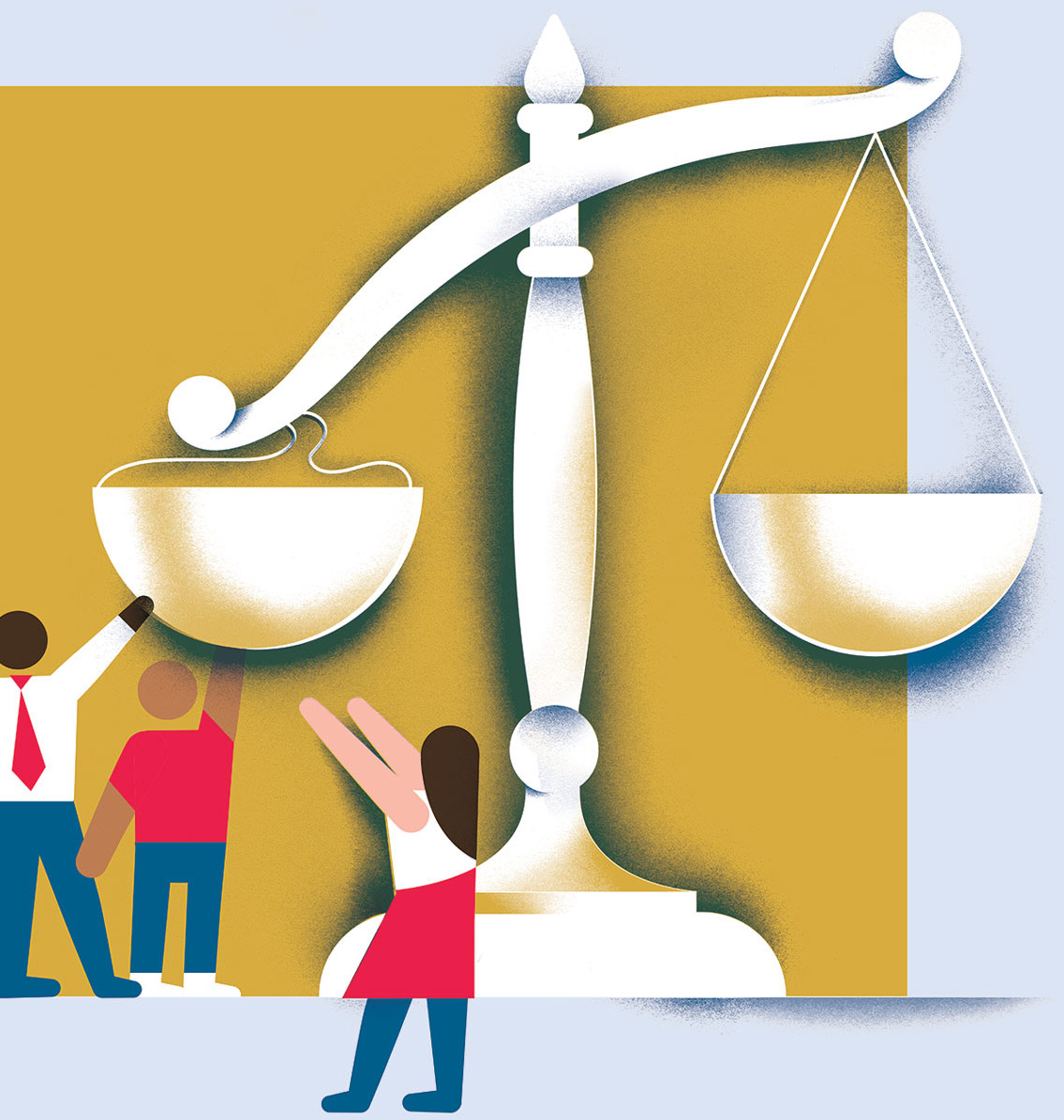
In addition, we’ve created new scholarships focused on acknowledging the legacy of Dr. Sadie Mosell Tanner Alexander ED’18, G’21, L’27 the first Black woman to graduate from the Law School. These scholarships will be awarded to members of the Fall 2021 incoming class. We are also increasing financial support for all students who are facing additional hardship, and we have launched really important conversations on advancing racial justice. We announced many of these initiatives this past summer and immediately took steps to start actualizing our vision. We anticipate continuing to take more steps progressively. This is in addition to our continued efforts to increase the diversity of our faculty, staff, and students, as well as our efforts to evaluate ourselves as an employer through an equity and inclusion lens.
Why is it important for a law school to address the mounting civil rights crisis?
Our society is experiencing a reckoning with racial justice that is nothing like anything many of us have ever seen. And it is of particular note for us in a law school and in the legal profession because, quite frankly, the law has been instrumental in supporting a lot of the inequities that we are trying to dismantle now. We have to acknowledge that the same Constitution that guaranteed individuals a right to a lawyer also propped up slavery. Lawyers need to pay particular attention to how the law can be both a sword and a shield.
We want to be more engaged in helping our students see how they can be advocates to change systems that are unjust, how they absolutely have to understand and appreciate the role that law has played in upholding systems of inequity, and how they have a special responsibility as lawyers to work diligently to disrupt those systems of inequity. Accordingly, orientation this year featured for the first time a discussion on law and inequality. The panel included Professors Karen Tani L’07, PhD’11 and Shaun Ossei-Owusu, who will co-teach a course on Law and Inequality in Spring 2021. We hope to find additional ways for our community to examine and address systemic racism going forward.